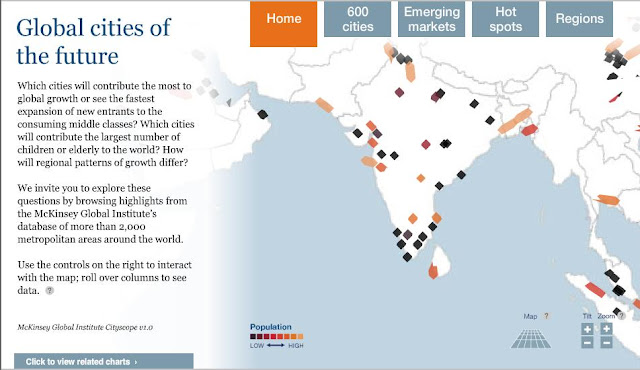A New Day in Egypt
------------------------------------------------------------------------------------------------
Egyptians celebrate in Cairo on Friday after forcing President Hosni Mubarak from office.
February 11 has gone down in the pages of history as a day when Egyptian President Hosni Mubarak, as a result of the people's anger, had to escape his presidential palace after 30 years of autocratic rule. Like the dictators and despots in other countries, Mubarak also had a strong hold on the administration. It did not seem that Mubarak will have to do away with power during his lifetime, but the 18-day nationwide protest of people against the government ultimately succeeded in dethroning him.
While three decades of Mubarak's reign witnessed the spread of corruption, unemployment and poverty, Mubarak himself managed to become one of the richest people in the world. His fortune is estimated to be around $70 billion, compared to that of Bill Gates' less than $50 billion. Reports suggest that Mubarak has properties in London and Manhattan, with accounts in Swiss banks and other countries. At the moment, the Swiss government has decided to freeze those accounts.
Many things make this Egyptian revolution special. This political transition included neither a military coup nor bloodshed. People, following the principles of peace and non-violence, continued to protest continuously for 18 days across the nation. They had only one demand, that Mubarak step down. Mubarak clung to the throne for a while, attempting to appease the protestors by transferring many of his powers to the vice president and promising that he would not run in the next presidential elections. But the people were unrelenting. And when Mubarak asked the Army to charge people on the streets, it refused to do so, leading Mubarak to make local police, mounted on horses and camels, ride in to chase away the protestors. All ultimately in vain.
Social networks like Facebook and Twitter played a major part in this historical change in Egypt by facilitating quick and rapid information dissemination. This movement was not led by any political party or leader. The Tunisian uprising, which forced the dictator President Zine El Abidine Ben Ali to flee the country, was surely an inspiration for the people of Egypt. Egyptians were fed up with the indifference of Mubarak towards the people's aspirations, and seeing Tunisians take matters in to their own hands showed that a successful uprising was possible.
When Mubarak became the vice president in 1975 and later president in 1981 following the assassination of Anwar Sadat, the people of Egypt used to love him. During his reign, however, Mubarak eliminated hundreds of his opposition and religious leaders who were his critics. He didn't allow opposition parties to raise their heads. The Egyptian people continued to watch and tolerate this silently. People even accepted, though unwillingly, the accord reached between Egypt and Israel in 1979. But when it came to poverty, unemployment and a question mark on their children's future, Egyptians couldn't tolerate it anymore.
Mubarak's staunch friend and supporter the United States is also singing the tune of the Egyptian people. Talking about "stability" at first, it is now supporting the installation of democracy. U.S. President Barack Obama, known for his non-violent approach, expressed satisfaction at this change and said that the protestors had proved wrong the approach that justice could be achieved only by violence. In his statement, Obama clearly indicated the shift in the future American policy vis-à-vis Egypt. Now the United States wants to see a functioning democracy with respect for human rights rather than the so-called stability of the Mubarak era.
Many concerns are being expressed after the fall of Mubarak. Presently, the Egyptian Army is headed by Field Marshal Mohammad Hussein Tantavi, who has vowed to soon hold free and fair elections and hand over control to a civilian government. But after Tunisia and Egypt, many Middle Eastern despots, who were hitherto running their administration based on coercion and violence against people, are worried about the domino effect. Algeria and Yemen are showing signs of their own uprisings. Most worried may be the oil-rich autocracy of Saudi Arabia.
This revolution has also cast a shadow on the future of Arab-Israeli peace talks. The United States and its allies are worried about the possibility of Iran having an increased influence in the region as a result of this change in Egypt. Another worry is that this revolution can weaken the West's war against Islamist extremism and terrorism. Concerns have been expressed regarding the impact of organizations like the Muslim Brotherhood on Egypt's politics. In addition, European countries are worried about the functionality of Suez Canal, which accounts for over 8 percent of world trade transport. This route is also significant since it reduces the distance between West Asia and Europe by well over 4,000 miles.
The impact of the Egyptian revolution on the West and the world will be clear only after the constitution of a new democratic government. But judging by the joy across the world in reaction to Mubarak's departure, one thing is clear. People all over are looking at the Middle East with new eyes. Oppressed citizens are in no mood to give a free run to any despot. It will not be a surprise if more dictators have to face the wrath of suffering people.



Comments
Post a Comment
If you have any doubts, please let me know